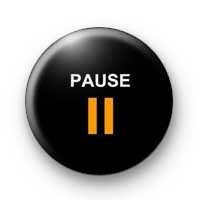I’m going to review some fairly controversial topics today. If you have trouble with God moving outside your comfort zone, you may not want to read this article. I’m serious: be careful! This may push your buttons.
We’re going to (well, I’m going to) talk about homosexual Christians, LGBT [Lesbian, Gay, Bisexual, Transgender] Christians. And whatever other letters are used these days. We’re going to talk about what God is doing in this community.
This is a topic that’s going to trigger some folks. If you choose to comment, please comment on what I am actually saying, not (I repeat NOT) on what somebody else said at some other time and place. Our goal is to get OUT of the mess that religion has put us in and to see what God is doing.
The Bible is clear, Old Testament and New: the homosexual behavior going on in those cultures is sinful behavior. That's not what this is about. (Neither is this about the sinful behaviors of gossip or pride or gluttony or any of the other sins that are plaguing believers.)
This is about what God is doing.
One day, some years ago, I was with a small group, praying for some folks we knew that were stuck in homosexuality. It was one of those prayer sessions where you just know that God is hearing your prayers, even as he’s helping to shape them and encourage us in them. It was wonderful!
In the midst of that, I had a vision: I saw tens of thousands of people in the homosexual community were encountering Jesus. It was a huge movement, and God was in their midst. They were worshiping powerfully, and God was delighting in their praise. There were signs and wonders. Many were in tears, some because of His love, some because of their sin, but it wasn’t always the sin I was seeing that they were convicted of.
I began to praise God for that revival, for the many sons and daughters that were coming back to their Father, and as I did, the vision shifted and became even more real: suddenly I was in their midst as we were worshiping God. (Full disclosure: I am not gay.) 
Father began to gently instruct me in the midst of this vision:
1) When he calls people to himself, he does not call them to leave their culture. American Church Culture is not his goal. Relationship with Jesus is the goal. Hmm. OK. That’s true enough. American Church Culture is not God’s goal.
2) When he finally got ahold of my own life (after a longer fight than it frankly should have been), I was not sin-free. There were several sins that he took decades to put his finger on. In fact, He continued, “There are some things I haven’t pointed out to you even yet.” (Um... Yikes.)
But it’s true. If he didn’t point out– and by pointing out, give me grace to deal with – some of my sins for decades, why should I expect him to be less patient with his other sons and daughters?
3) And son, he said so very gently: these are my children, not yours. I am their Father, you are not. I am capable of raising My own children without your getting in their way. It was not (quite) a rebuke, but he was clear: he was not soliciting my opinion of how he fathers his children.
Since that experience, I’ve received reports that this is actually beginning to happen, that substantial numbers of people inside the LGBT community are discovering the Lover of their Souls!
I have received several credible testimonies from different people in different streams that describe to me a revival that is currently going on among the homosexual population. (At their request, and for their safety, I will not be releasing their identities. Some people do not respond well when God moves outside their box.)
These testimonies are from mature prophets and apostles, from people I know and trust, from mature believers who have been among some of these gatherings of gay believers – we might call them either church meetings or conferences – where the worship is powerful, where the Holy Spirit is present, where signs and wonders are in abundance, where Jesus is lifted up high. They have recognized God’s favor on the gatherings, and experienced His delight in them. Usually, it confused them the first few times, too.
I have met believers who are homosexuals, everywhere from your basic, timid churchgoers to flaming transsexuals proclaiming the gospel to their community. Some are content with their homosexuality; some want out but don’t know how; some are proud of their status, though these appear to be the primary ones who’ve taken the brunt of the church’s accusations.
I’ve said all this to arrive at this conclusion: God is moving powerfully in ways that we never expected.
Maybe I shouldn’t speak for you: God is moving powerfully in ways that I never expected. And I have the strongest sense: Hold on to your hats, because God has more than this that he’s going to do that is way the heck outside of our box.
So how shall we respond to homosexuals that call themselves Christians?
That’s simple: we love them. Just like we’re called to love self-righteous people who call themselves Christians. Just like we're called to love everybody. We’re called to love.
We surely have no right to challenge the faith of either the gay community or the self-righteous community, or the hypocritical churchgoing community (or any other community). Frankly, we nearly always lack the right to challenge either their behavior or their culture. But we have the right to love them. We have the responsibility to love them.
I propose this: Let’s love one another, as Jesus commanded us, shall we? And let's trust our good Father to raise His children well.
And maybe we celebrate when people come to Jesus. He does.

.jpg)





